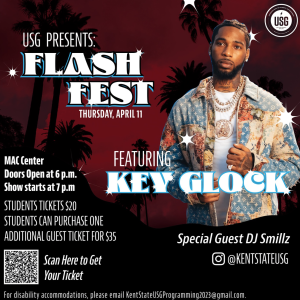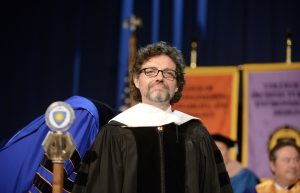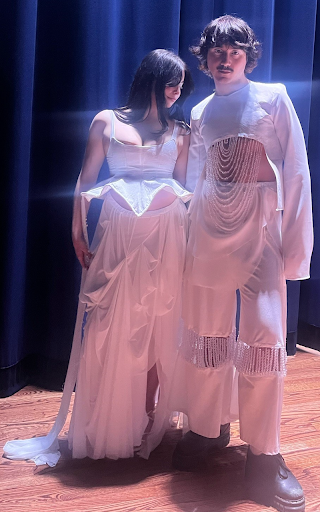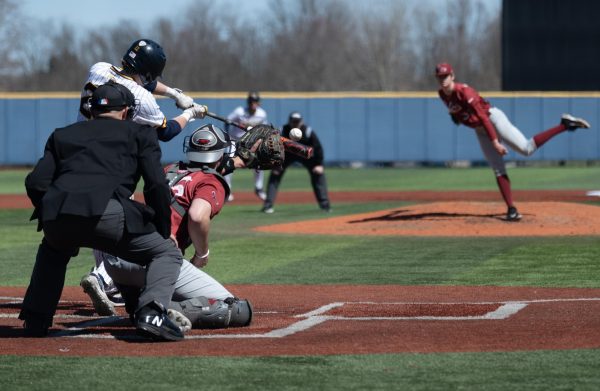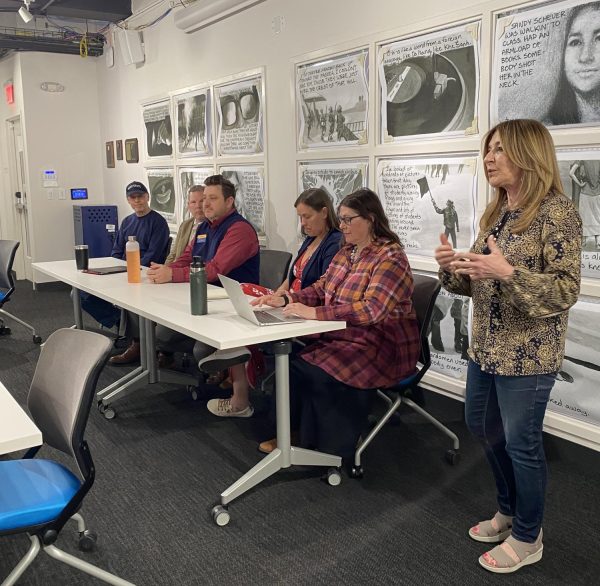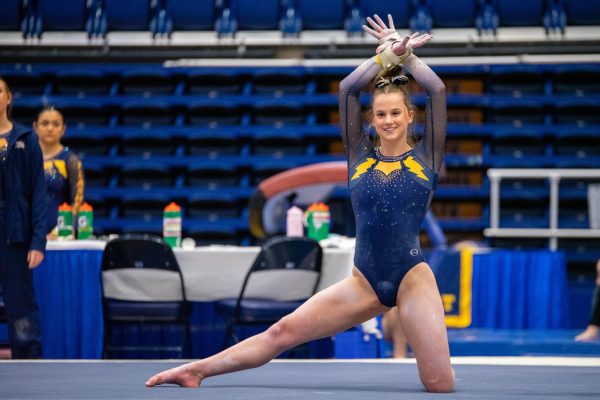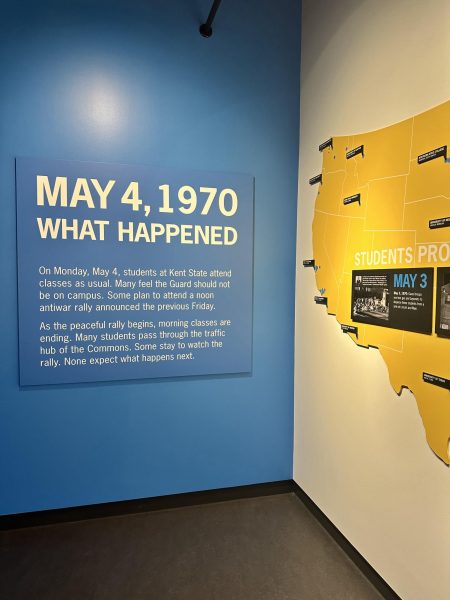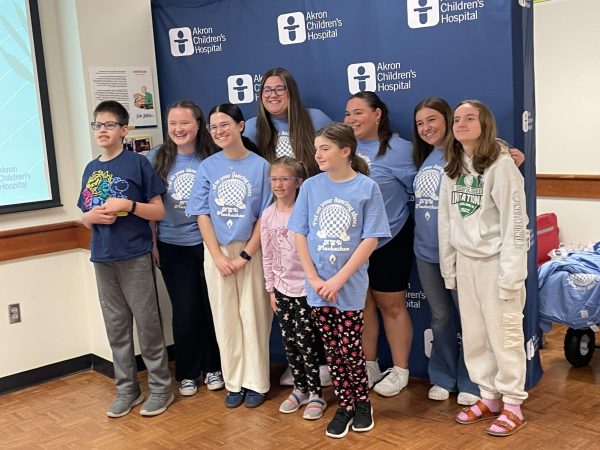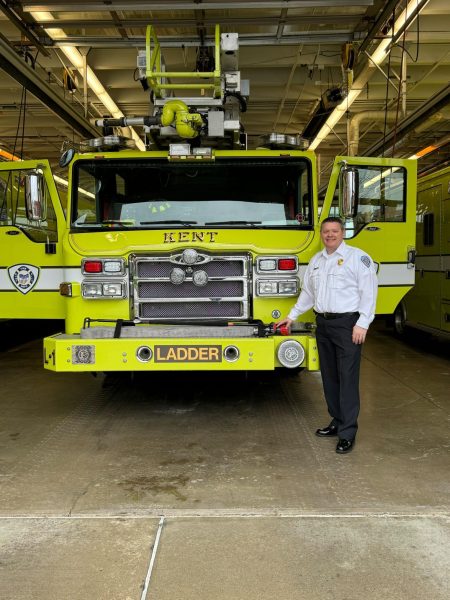As voting opens, student leaders question USG
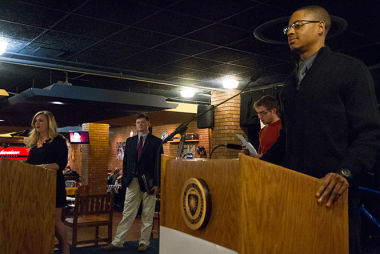
Candidates debate in the Rathskellar, Feb. 20, 2014, for the 2014 Undergraduate Student Government elections.
March 2, 2014
Elections for 18 positions in Undergraduate Student Government are becoming a source of confusion for some student groups.
On the eve of this year’s elections, which are available online Tuesday, recent polls, interviews with randomly selected students and outspoken leaders of several student groups indicate a wide disconnect between the Kent State student body and its government.
Marvin Logan, the currently unopposed candidate for Executive Director, said he believes students and USG members are responsible for their lack of interaction.
“I think that it’s a two-sided issue,” said Logan, a senior Pan-African studies major who been involved with USG since his freshman year. “I think that there is a lot of apathy from our student body, a lack of desire to be informed, to get involved in these sort of things.
“But on the flip side, I think more importantly, I think that we have failed at every turn as an organization to achieve effective outreach to our students.”
USG was formed in 1924 with the intention of governing the student body and facilitating relationships between students, faculty and the community. It brings artists to campus, organizes BlastOff and other events such as the Study-A-Thon and FlashFest. USG provides funding for student groups and is in charge of many other programs on campus.
Voter turnout for USG elections have been steadily declining in recent years. In 2011, 2,238 students voted. That number dropped to 1,749 in 2012 and last year to 1,462 — just six percent of last year’s total enrollment on Kent campus.
Last week, the College Republicans, College Democrats and PRIDE! Kent released a joint statement stating none of their organizations would endorse any USG candidates, citing a feeling of disconnect.
“As three of the most active student organizations on campus, we have witnessed a consistent disregard for openness that all government bodies should adhere to,” the groups stated in the press release “We believe that student government is essential and a vital part of student life, so therefore we find it necessary and proper to call attention to these issues.”
“There were a lot of [USG candidates] coming to PRIDE! for endorsements last year,” said Brandon Stephens junior criminology and justice studies major and president of PRIDE! “A lot of promises were made, and I can tell you that none of those promises were ever met. I don’t think any of those promises were even considered after elections were over.”
Some of last year’s USG candidates did indeed make various promises. Stephens referenced the gender-neutral housing, which just recently passed as something the university will make available.
Most candidates did not make any specific promises but instead vowed to improve communication.
Stephens said a disconnect may exist because the USG candidates get elected and then decide they no longer have to communicate.
“I think, like a lot of elected officials, once they’re elected they’ve forgotten that they are elected,” Stephens said. “Their budget and their salary is supplied by the students who have elected them. It’s become blatantly obvious to us that they’ve forgotten the core value of democracy and how the student government should be run by the students.”
Bryan Staul, senior political science major and president of the College Democrats, said although he has expressed a willingness to meet with current director Amish Patel, USG has not reached out to College Democrats since the press release despite the proximity of two organizations’ offices.
“That was shocking that they couldn’t even come down, it’s ten feet from the rest of our offices that are right next to each other, and they couldn’t come down, they couldn’t set up a meeting,” Staul said. “I don’t think that release would have happened if they one, published their budget when they passed it, two, if they had worked with us and understood our frustration. And they knew for weeks we were frustrated.”
Dillon Lloyd, senior criminology and justice studies and a member of the College Republicans, said he agreed USG fails to communicate with students and student organizations.
“They don’t come around and talk to us until endorsement season, and then they want to be your best friend,”Llyod said. “They come to your meetings, they show interest, but for the rest of the year they don’t even acknowledge us.”
Candidates in this year’s races are not oblivious to the perception of disconnect. Sophomore Josh Lewis, write-in candidate for Director of Student Involvement, said he wants to expand the student government’s advertising.
“I told my friends I wanted to run for USG, and I can’t tell you how many stopped and asked me, ‘What is USG?’” he said. “As important as USG is we do not have the presence we should with the student body and other organizations on campus.”
Trevor Fisher, a freshman philosophy major, said that he would vote but he had never had any contact with USG.
“I saw the poster,” he said “but nothing else. Usually organizations send out emails or something, but I’ve never heard anything from USG. It is the student’s responsibility to respond to information, but I’ve never been given any.”
Haley Lozier, a freshman and double major in international relations and history, said she too had not heard anything from USG.
“I would vote if I knew more, but I think it’s overwhelming for students to try and find out about so many organizations,” she said.
Logan said he will work to fix the communication problem during his term in office, acknowledging that it has been a challenge for USG to spread information since the previous communications director left unexpectedly at the beginning of the semester.
He wants to institute “activity hours” as a required part of office hours, so USG members will have to be present for hours outside of their office and in the field. He said it would be a “positive change in our engagement and our outreach.”
He also wants to revamp and revitalize the way USG communicates.
“Just in terms of promoting USG, one of the things we’re going to do right now is launch a special initiative to survey students, see what’s the best way to get information to them and get information from them,” Logan said. “And I’m going to demand out of my peers to get out and be effective hands-on student leaders.”
For more information about USG, visit the website, Twitter, and budget pages.
Contact Blair Donald at [email protected].








